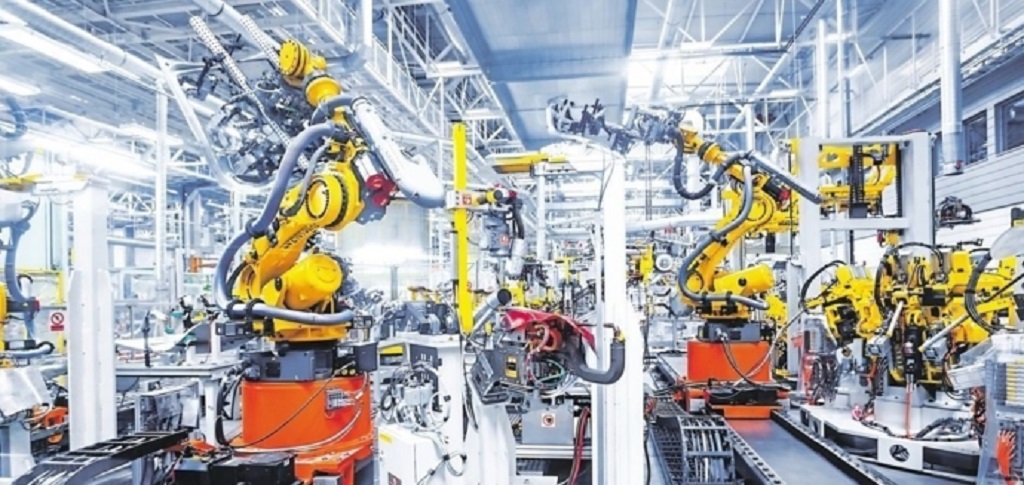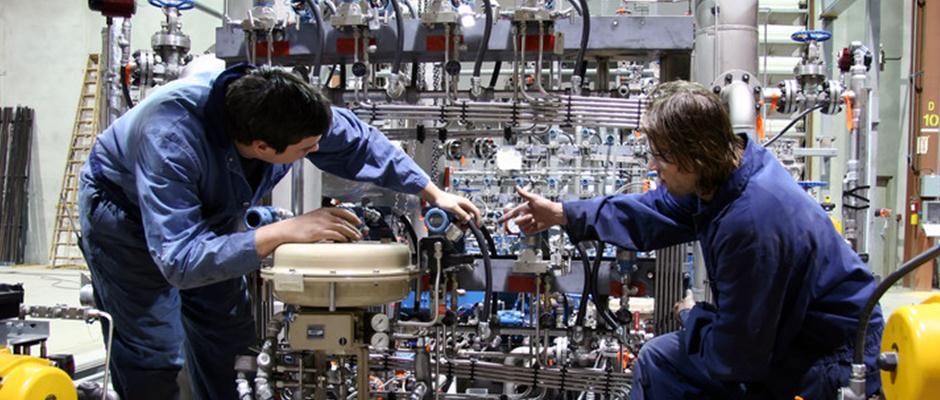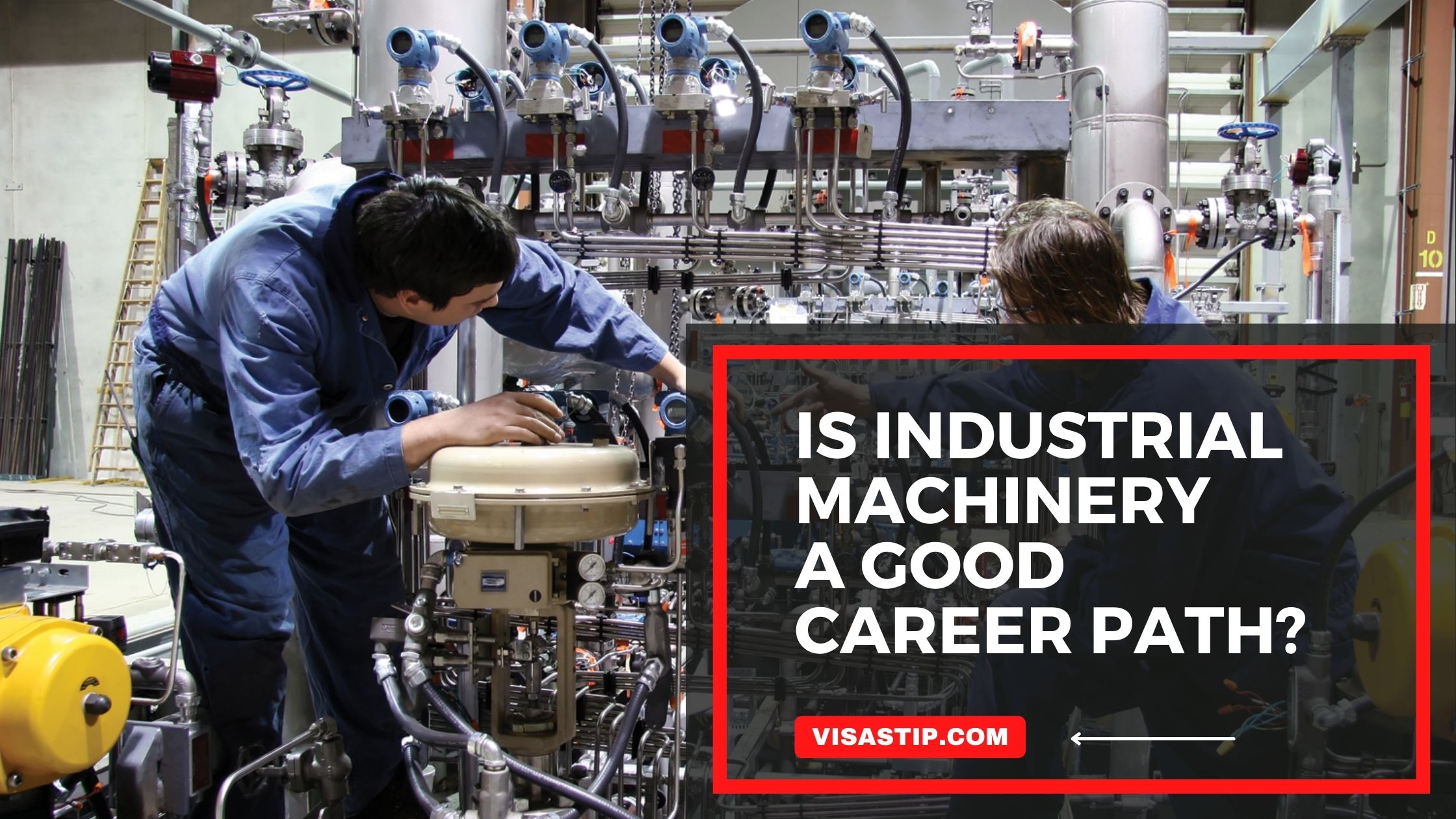As we enter a new era of innovation and automation, the demand for workers who can compete in this changing landscape is growing. One of the essential fields in today’s job market is Industrial machinery components.
Workers in this industry are much more likely to find employment than other types of engineers.
Many people don’t know what industrial machinery components do or how it benefits them, but these machines make our lives easier every day.
They produce goods to manufacture products like cars and computers and help us with tasks like washing clothes or cleaning dishes at home.
If you’ve ever wondered what industrial machinery components do or why we need them so badly, this article will answer your questions.

What Are Industrial Machinery Components?
Industrial machinery components are parts of industrial machines. These parts are used in manufacturing processes, as they help to manufacture and produce products. You can also find these parts in the production of industrial goods or consumer goods.
There are many different industrial machinery components, each with its specific purpose. These parts include pumps, motors, gears, belts, and chains. Each of these parts works to do a specific task in the manufacturing process. They are all needed for an industrial machine to operate correctly.
After manufacturing, industrial machinery components are assembled into the machines, and workers do this in factories. Once the machine is complete, you can use them to produce products or goods.
Is Industrial Machinery Component A Good Career Path?
If you are looking for an adventurous and exciting career pathway, the Industrial machinery component has several uses in different industries. It can offer a wide range of job satisfaction and excellent career prospects for its enthusiasts.
So, the industrial machinery component industry is a good career path to consider. Here are five reasons why:
- This field offers many career opportunities. You can even find more options when you have a degree.
- You can work in various industries, including manufacturing, utilities, and construction—and even government agencies like the Department of Defense.
- Your job could be located anywhere across the country or around the globe if you want it to be: Some companies will even send employees overseas to work on projects together while still paying their full salary back home.
- The roles available within this industry vary widely; they aren’t all just blue-collar positions either—you can also find some white-collar jobs, such as managers or engineers. It all depends on what level of knowledge/skill set someone has when entering this field. Less-experienced workers tend towards factory floor positions, whereas those with higher degrees may go into engineering roles instead because their salaries reflect those responsibilities too.
Career Options In Industrial Machinery Components
There are lots of career opportunities with being in the Industrial Machinery Industry. That is because it has various us across several industries. However, we have a list of some significant career options for people working in the industrial machinery industry. They include;
1) Manufacturing Engineer: Often referred to as Industrial Engineers, these professionals are in charge of designing and developing various components needed for machines. They also handle things like improving productivity, solving issues that may arise during manufacturing processes, etc.
2) Quality Control Engineer: As the name suggests, these workers ensure that all products being produced meet set quality standards before leaving the factory floor. This role includes inspecting products, ensuring adherence to guidelines, and conducting risk assessments.
3) Maintenance Engineer: Much like Quality Control engineers deal with maintaining product quality, maintenance engineers work on keeping machinery in top condition at all times. Their roles might involve fixing broken parts or performing preventative maintenance tasks such as changing lubricants.

Best Paying Jobs In Industrial Machinery Components
If you’re looking for a career that pays well, then industrial machinery components might be the right choice. It’s not always easy to find good-paying jobs, but this field can offer some of the best pay available in manufacturing.
The following are some of the highest-paying occupations in this sector:
- Automation Engineer: $80,000 per year
- Quality Control Inspector: $51,000 per year
- Instrumentation Engineer: $85,000 per year (including bachelor’s degree with no experience)
Automation Engineers
Automation engineers are responsible for designing, developing, and implementing automation systems in manufacturing industries.
How Much Do Automation Engineers Make? The average annual salary of an automation engineer is $80k-$120k (or even more), depending on experience level and job title within the industry (e.g., senior or junior).
Quality Control Inspectors
If you’re interested in working in quality control and inspection, a good starting point would be to become a QC Inspector. The average salary of a Quality control inspector is $51,000 per year.
As the name implies, these professionals are responsible for ensuring that products are of high quality before reaching the customers.
Various industries hire QC Inspectors, including manufacturing, transportation, warehousing, and wholesale distribution.
5 Skills Required For A Job In Industrial Machinery Component
To become a professional industrial machinery component engineer, you should have the following skills:
- The ability to read and understand blueprints.
- Machining skills include knowledge of various machining processes, tools, and measuring instruments.
- The ability to pay attention to details.
- Troubleshooting skills.
- Decent Eye-to-hand coordination.
How To Become An Industrial Machinery Engineer

Component? Most of the time, you need a bachelor’s degree to work in this field. However, some smaller companies may be willing to train you on the job if you have a high school diploma and relevant experience. To get ahead in this industry, workers must stay up-to-date with new technology and developments in your industry.
You can do this by attending seminars, workshops, and conferences. You can also join professional organizations, like the American Society of Mechanical Engineers (ASME). ASME’s technical publications and conferences are good resources for staying up-to-date on current trends in the field. They also have several standards that you can use when designing products and systems.
Conclusion
Now that you know all the necessary skills, job options, and career growth opportunities in this field, it’s your turn to decide if the Industrial Machinery Component is a good career path for you.
The benefits and other information highlighted in this article should give you a clear idea of what to expect in this career.
We hope this article has helped you make an informed decision about whether or not the Industrial Machinery Component field is right for you.
